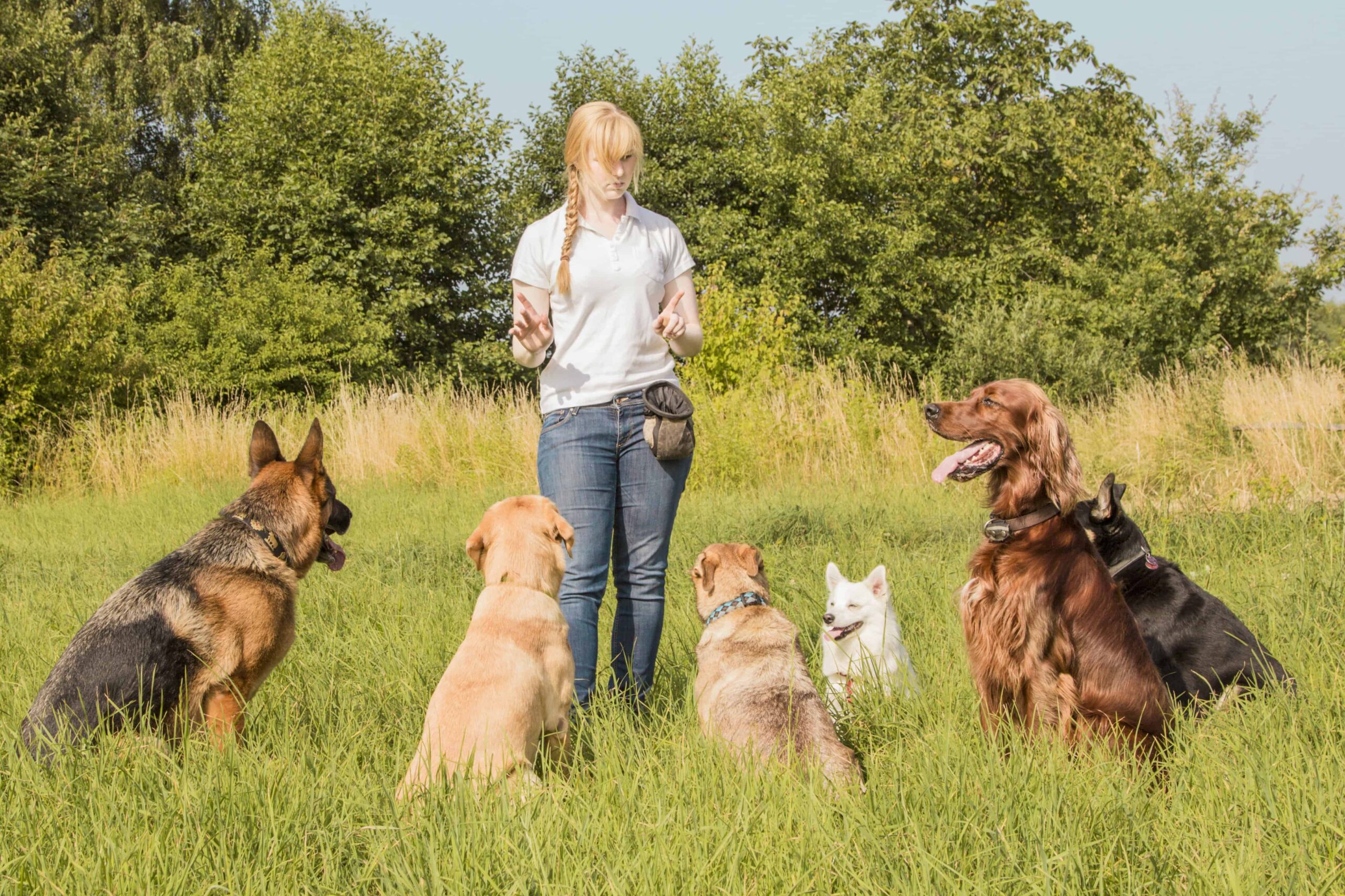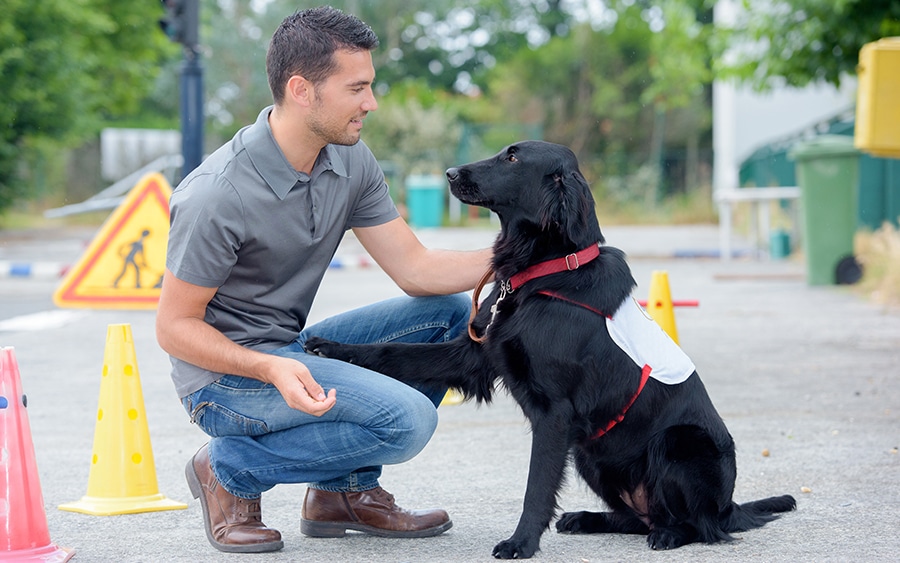Unleash Potential with Dog Training Near Me: Locate Your Local Professionals
Unlock Your Pet dog's Potential: Proven Pet Training Approaches for Success
Effective canine training is a nuanced procedure that pivots on comprehending canine actions and utilizing medically backed strategies. By including favorable reinforcement, establishing clear commands, and prioritizing socialization, canine owners can cultivate an efficient partnership with their pet dogs.
Comprehending Pet Habits
Comprehending pet dog habits is crucial for efficient training and cultivating a positive connection between canines and their proprietors. A detailed understanding of canine body movement, vocalizations, and social interactions is crucial for identifying their feelings and demands. Canines interact mainly via non-verbal cues; for example, a wagging tail may suggest enjoyment, while pinned ears can signify worry or submission.
Furthermore, ecological factors play a significant role in shaping a dog's habits. Modifications in routine, new environments, or the visibility of strange people can bring about tension or anxiousness in pet dogs. Identifying these triggers makes it possible for proprietors to minimize adverse responses and create proper training approaches.
Inevitably, a deep understanding of dog actions lays the structure for effective training methods, boosting both actions and the overall bond in between the canine and its proprietor. dog training near me. This knowledge is important for fostering a well-adjusted, delighted canine friend
Positive Reinforcement Techniques
Effective training relies heavily on positive support methods, which have actually been revealed to generate substantial results in forming wanted habits in canines. This approach includes awarding a canine for showing specific behaviors, consequently increasing the likelihood that these behaviors will certainly be repeated. Incentives can take different kinds, consisting of deals with, praise, toys, or playtime, depending upon what inspires the specific dog.

It is vital to gradually eliminate incentives as the canine finds out the behavior, transitioning to recurring reinforcement. This approach keeps the behavior in time while stopping dependency on consistent benefits. By focusing on favorable reinforcement, fitness instructors can cultivate a relying on partnership with their canines, advertising a healthy and balanced and participating training environment that enhances general obedience and performance.
Establishing Regular Commands
An essential aspect of effective dog training is the facility of consistent commands. Consistency in commands is important for efficient interaction between the instructor and the pet. When commands are uniform, dogs discover to link particular words with desired behaviors, which accelerates the training process and boosts understanding.
To establish constant commands, it is necessary that all relative use the very same terminology and motions. For instance, if someone uses "rest" while one more states "sit down," it can produce confusion for the pet dog. Select clear, distinctive words for commands and make certain everybody entailed in the dog's training follows these choices.
In addition, rep is key. Strengthen commands via regular technique, making sure that the canine receives sufficient possibilities to react properly. When a dog successfully adheres to a command, instant positive reinforcement ought to adhere to. This could be in the type of deals with, praise, or play, strengthening the link in between the activity and the command.
Last but not least, be patient. Establishing regular commands takes some time and initiative. With dedication and clearness, you will assist your pet dog develop a solid understanding of expectations, ultimately causing a mannerly companion.
Socialization and Exposure
Socializing a dog is important for fostering a well-adjusted and confident buddy. This procedure includes revealing your dog to a range of settings, people, and other pets to create their social skills and versatility. Early socializing, preferably in between the ages of 3 to fourteen weeks, is crucial, as it prepares for a pet's future habits.
Throughout socializing, objective to offer favorable experiences in various setups, such as parks, busy roads, and homes with other pets. Introduce your dog to different stimulations, including noises, sights, and smells, making certain that each experience is rewarding. This exposure assists minimize worry and stress and anxiety, paving the means for a much more durable pet dog.
Participating in controlled group play sessions with various other dogs can additionally improve social skills, teaching your family pet suitable communications and borders. Constantly monitor your pet's convenience degree during these experiences, slowly enhancing exposure as their self-confidence grows. Keep in mind, the goal is to produce an all-round animal that prospers in varied situations, promoting a harmonious connection with both human beings and other pets. Focusing on socializing will considerably add to your pet's total joy and actions throughout their life.
Overcoming Common Educating Challenges

Canines might battle to concentrate in active or unknown setups. Gradually desensitize your dog to disturbances by starting training in a quiet environment and gradually introducing even more stimuli as they end up being skilled.
Additionally, behavior concerns like jumping or too much barking can come to be discouraging. Address these by instructing alternate actions, such as resting comfortably when welcoming visitors. Consistency and perseverance are essential; reinforce wanted actions consistently and stay clear of scolding, which can cause confusion.
Lastly, recognize that each pet is distinct, and training timelines might differ. Tailor your method to your dog's private demands, and seek specialist advice if needed. With perseverance and the best strategies, conquering these difficulties can lead to a trained, satisfied canine buddy.
Verdict
Finally, unlocking a pet's possible necessitates a thorough method that includes an understanding of canine habits, the application of positive reinforcement strategies, and the establishment of consistent commands. Early socializing and direct exposure to diverse environments even more improve a pet's adaptability and self-confidence. By addressing common training challenges with tailored approaches and patience, a harmonious and participating connection between canine and these details trainer can be fostered, inevitably resulting in a well-behaved friend efficient in prospering in different circumstances.
Effective pet dog training is a nuanced process that hinges on understanding canine habits and using medically backed strategies.Comprehending dog habits is essential for reliable training and promoting a favorable relationship between pet dogs and their proprietors.Reliable training relies heavily on positive reinforcement methods, which have been shown to yield substantial outcomes in forming preferred actions in pets. When commands are uniform, canines discover to associate details words with wanted behaviors, which speeds up the training procedure and boosts understanding.
In conclusion, opening a canine's possible necessitates a thorough technique that integrates an understanding find more info of canine habits, the application of positive reinforcement methods, and the establishment of constant commands.